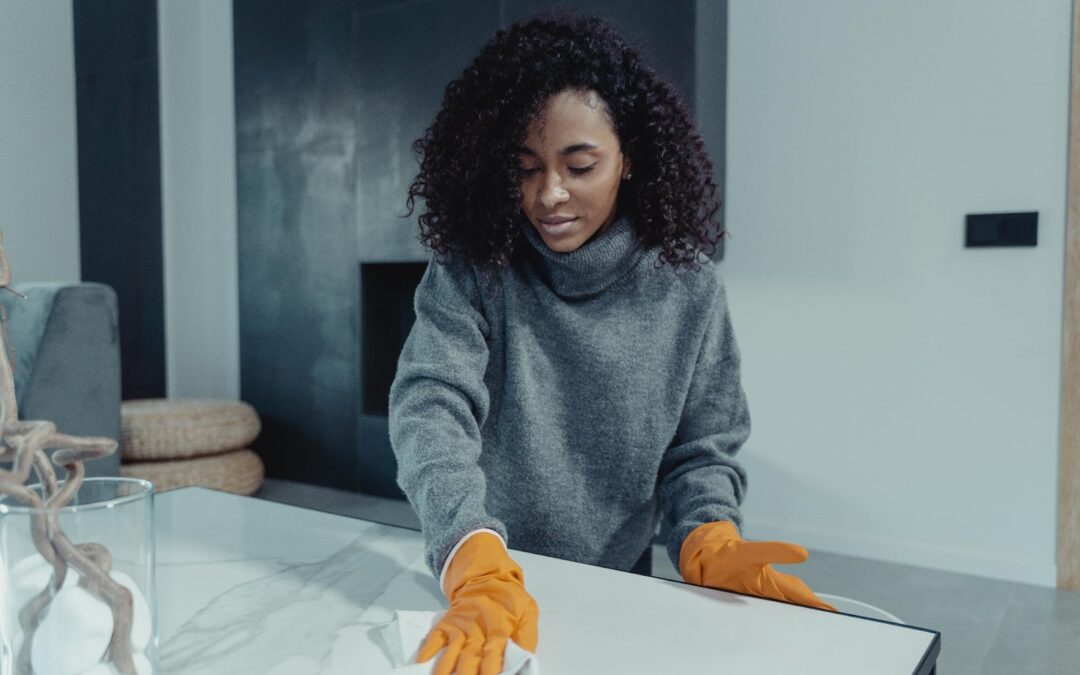Home maintenance is essential to ensure the functionality and appearance of your living space. However, hiring professional help can be quite expensive. If you’re just starting out with DIY projects, this guide will provide you with some essential home maintenance tips and techniques to help you get started and save some money in the process.
Inspecting and Cleaning Your Gutters
Regularly inspecting and cleaning your gutters is essential to prevent water damage to your home. Remove leaves, debris, and other clogs to ensure proper water flow. Additionally, make sure your downspouts are directing water away from your home’s foundation.
Changing HVAC Filters
Change your heating, ventilation, and air conditioning (HVAC) filters every 1-3 months to maintain good indoor air quality and improve the system’s efficiency. Simply locate the air filter, remove the old one, and replace it with a new one of the same size. Regular maintenance will help prolong the life of your HVAC system.
Maintaining Your Drainage System
Perform regular checks on your home drainage system, including sinks, bathtubs, and toilets. Use a drain snake or chemical cleaner to remove any blockages and avoid severe plumbing issues. Avoid pouring grease and hair down your drains to prevent clogs in the future. In case you encounter a serious issue that you are unable to handle yourself, consider contacting a professional service like Plumbing Emergency Houston Texas for expert assistance.
Sealing Cracks and Gaps
Small cracks and gaps in your home’s exterior can lead to water infiltration and heat loss. Use caulk or weather-resistant sealants to seal any gaps and keep your home protected from the elements.
Checking Weatherstripping
Weatherstripping helps keep drafts from entering your home through doors and windows. Inspect the stripping regularly for wear and tear, and replace it if necessary to improve energy efficiency and reduce heating and cooling costs.
Draining and Inspecting the Water Heater
Perform an annual inspection of your water heater and drain the sediment to prolong its life and ensure efficiency. Turn off the power, connect a hose to the drain valve, and let the water run outside until it runs clear. Be sure to consult the manufacturer’s instructions for your specific water heater model.
Testing Smoke and Carbon Monoxide Detectors
Ensure the safety of your household by testing your smoke and carbon monoxide detectors monthly. Replace batteries as needed and make sure every room in your home has a working detector. Carbon monoxide is a silent killer, so having reliable detectors is crucial.
Cleaning and Maintaining Appliances
- Refrigerator: Vacuum the refrigerator coils and clean the door gasket to improve energy efficiency.
- Oven and Stove: Clean any spills or debris from your oven and stove to maximize cooking efficiency and prevent fire hazards.
- Washing Machine: Examine the washing machine hoses for signs of wear or leaks. Replace them if necessary and clean the lint filter to prevent blockages.
- Dryer: Regularly clean your dryer’s lint filter and vent, as the buildup can lead to longer drying times and even fire hazards.
Keeping Your Home’s Exterior in Good Condition
Perform regular checks on your home’s exterior—look for chipped paint, damaged siding, or loose bricks, and address any issues as soon as possible. This will help maintain your home’s curb appeal and protect it from the elements.
Inspecting and Repairing Your Roof
Keep an eye on the condition of your roof, and repair any loose or damaged shingles as they are identified. Simple repairs can prevent issues such as leaks and water damage, ultimately extending the life of your roof.
Landscaping and Yard Maintenance
Keep your outdoor space looking pristine by regularly mowing the lawn, trimming hedges, and removing weeds. Well-maintained landscaping not only adds to your home’s curb appeal but can also prevent damage to your home from overgrown trees or unattended plants.
Checking and Maintaining Sump Pumps
Regularly inspect and test your sump pump to ensure it is operating efficiently and keeping your basement dry. Clean the intake screen and check the float switch for any issues. If your sump pump has a battery backup, it is essential to replace the batteries every 2-3 years.
Garage Door Maintenance
Lubricate your garage door’s rollers, hinges, and tracks to keep it running smoothly and quietly. Inspect the door’s balance and safety sensors to ensure proper functionality. Replace worn weatherstripping to protect your garage from external elements.
Conclusion
With these DIY home maintenance tips and techniques, you’ll be well on your way to keeping your living space in excellent condition. Remember, regular inspections and timely repairs can prevent costly issues down the line and prolong the life of your home and appliances. Happy DIY-ing!

